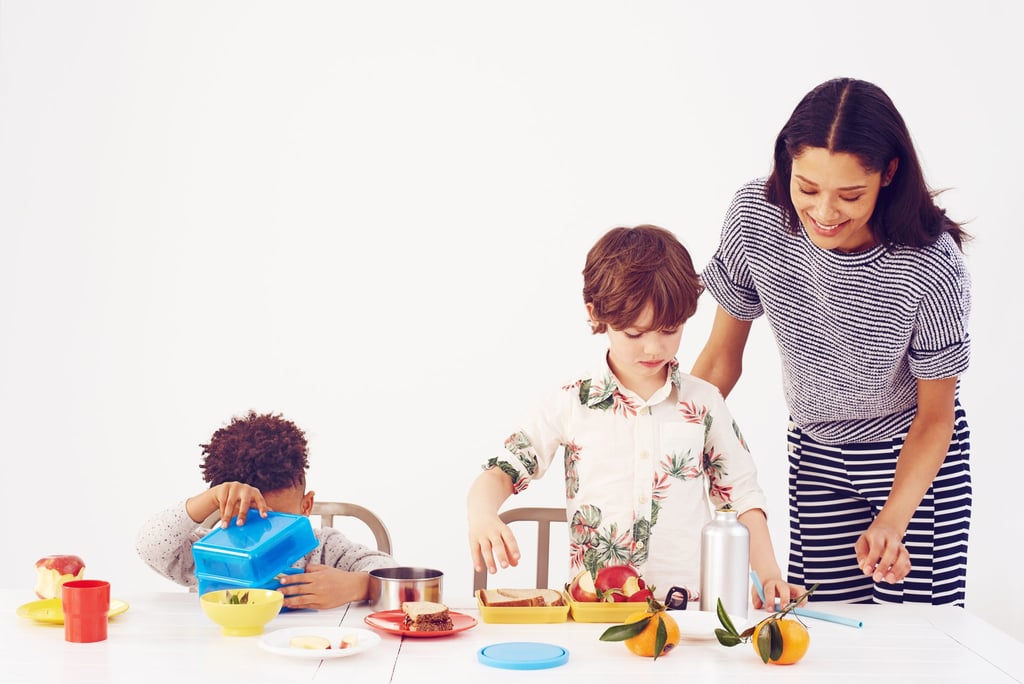While alone time now and then is a real blessing (Hello, bathtub and good book [1]!), feeling alone all the time can pose some actual risks to your health. "There is a difference between time alone and isolation," Kevin Gilliland, PsyD [2], executive director of Innovation360, told POPSUGAR. "The most savage of all symptoms that we struggle with is isolation and withdrawal; it is terrible for us [3]."
He echoed the idea that stepping away from time to time is energising and refreshing [4], but that isolation "shows up in a number of psychiatric illnesses such as depression [5], anxiety, and substance abuse."
Erica Patel, MD, of the University of Southern California, expanded on this. "Loneliness negatively affects physical and mental health," she told POPSUGAR. "Multiple studies have shown increased rates of depression and frailty; poorer cardiovascular health [6] and decreased immunity; and an increased risk of premature mortality [7] in people suffering from loneliness."
The antidote to this — human connection [9] — may seem simple enough, but can be daunting for those with distance between them and their loved ones [10] (physical or emotional), or who are otherwise struggling in the relationship department. "The Harvard Study of Adult Development is one of the longest and most fascinating studies of adult life that has ever been performed," said Gilliland. "I hate to summarise 75 years of data, but it's actually rather simple: meaningful, loving relationships are the most important thing [11] to our physical and mental health — more than diet and exercise."
So what can you do? As it turns out, a lot. And no, we're not going to leave you with the "Just go make some friends!" advice and call it a day. Here are tips that anyone can implement, from experts and those who have overcome loneliness themselves.
Don't Know Where To Start? Take Inventory
"First, look at the people that are in your life — maybe work friends or fellow parents who are in the same phase of life," said Dr. Gilliland. "Then try to get together."
If it helps, try writing down a list of people you interact with most. Then, it's time to get creative and come up with some fun plans. Invite a coworker you like talking with to the cinema or for drinks, or ask your neighbour if they want to join you for a walk [12].
In a New City? Exercise
Group exercise classes can foster incredible communities of positive, active friends [14] who are open to new relationships. Whether it's yoga, a spin class, or the aqua aerobics class at your local leisure centre, chances are you'll see the same faces if you go often. You'll also reap the health benefits of consistent physical activity, which can combat negative moods and even help with depression [15]. "It releases endorphins," Dr. Patel said.
Are you more of a sports person? Joining a city intramural sports team could be that thing you need to create new connections.
Anxious? Create a Routine
"I genuinely believe that creating a regular routine [16] will help combat loneliness," said Dr. Patel. "It makes your day feel more full with activities, so you aren't anxious about having so much alone time without anything to do."
Create a plan for your day; make time for meditation, skincare, a favourite coffee place, a workout. Stick to your routine and stay busy — you never know who you'll meet in the process. Even becoming a regular at your coffee shop could lead to new and unexpected connections.
Feeling Adventurous? Join a New Group
Dr. Patel suggests painting and cooking classes, groups rooted in common interests and hobbies, or even improv to get out of your comfort zone if you're feeling bold and spontaneous. The nuances don't matter so much as the doing. Try a few, but regardless — just get out there!
Working Alone? Don't!
Feelings of isolation don't just come from your social life. With the boom of the gig economy and the shift within the Millennial demographic toward independent work, that feeling of isolation can compound without the camaraderie of a team and coworkers.
"The feeling of isolation does not take much time to start showing up," said Fernanda Paronetto, who decided to create her own business [17] after working in a corporate environment for more than 12 years. Working from home — alone — was a huge shift that impacted every aspect of her life, including her physical health and gym time.
"I first started working out of coffee shops, but that also got quite hard, so I finally decided to move into a WeWork," she told POPSUGAR. Instead of opting for a private office in her coworking space, she chose a "Hot Desk," which is an open, community-centric working area.
Through this, "I created a great new group of friends that I actually have a relationship outside of work," she said — and gained a network of colleagues to support her business (and vice versa). "The world of freelancers is growing everywhere. Having a community that joins them is priceless."
Miss Your Friends? Use Social Media
Perhaps it's been a while since you've seen some of your old friends. Did a romantic relationship pull you away from your inner circle? Maybe you moved for a job and fell out of touch with your old pals. Whatever the case, Dr. Gilliland recommends using social media to reconnect with people with whom you were once close. "That is definitely one of the benefits of social media," he said.
Try reaching out on Facebook, Instagram, or even text. If you've moved far away, use FaceTime and set up recurring dates with those you miss.
Feeling Isolated? Volunteer
Volunteering is one of the most wonderful ways to enjoy human connection.
"Volunteering can help people feel like a true part of their community," said Dr. Patel. "Giving back can give you a sense of purpose [18], boost self-esteem, and make you feel useful. You can also meet other fellow volunteers and strike up a friendship!"
Dr. Gilliland agrees. "Offering to volunteer is a wonderful way to meet other people and be engaged in activities that are meaningful and enjoyable." Consider local food banks and drives, homeless shelters, women's shelters, children's hospitals, recovery and treatment centres, and animal shelters and adoption sites.
Feeling Hopeless? Seek a Counselor
A therapist or counsellor can help you with the exact resources that speak to your personality type, situation, and needs. You're never completely alone, and there's always someone to help (even if you don't have insurance!). You might be surprised with what their perspective has to offer.
Remember, it's always a little bit of work — for everyone! — to keep up with a social life. "The reality is that it takes effort to maintain relationships," said Dr. Gilliland. "We live in a very busy world, and we are not doing the best of jobs at creating space to pursue and enjoy meaningful relationships. We have to create the space and set aside the time and energy. And when we do, we often walk away feeling refreshed and energised and enjoying life a little bit more than the day before."









